MercoPress. South Atlantic News Agency
Tag: Venezuela
-
Wednesday, February 21st 2018 - 01:26 UTC
Petro, the Venezuelan cryptocurrency is online

The pre-sale of Petro began early on Tuesday, the cryptocurrency proposed by the Venezuelan government in recent weeks and backed by the country's natural resources. According to experts, it is “ridiculous”, arguing that the creation of a new currency would aggravate the economic crisis in the Caribbean country.
-
Monday, February 19th 2018 - 09:14 UTC
Venezuela launches its “Petro” crypto-currency, backed with oil, on Tuesday
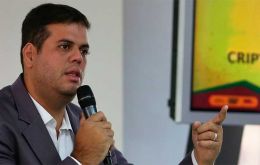
Venezuela’s “Petro” crypto-currency will attract investments from Turkey, Qatar, the U.S., and Europe, the country’s crypto-currency regulator, Carlos Vargas, told reporters. The Petro will be offered for sale this Tuesday, February 20th, and comes as Venezuela is suffering from quadruple-digit inflation and chronic shortages of food and medicine.
-
Friday, February 16th 2018 - 23:14 UTC
Maduro will not be able to enter Peru or the Summit of the Americas
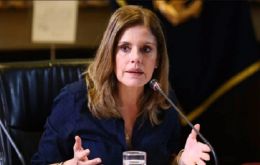
The government of Peru announced through its prime minister, Mercedes Aráoz, that it has withdrawn the invitation it sent to Venezuelan President Nicolás Maduro in November to attend the eighth Summit of the Americas, to be held in Lima on the 13th and 14th. of April; a week of the criticized presidential elections decreed by the Constituent Assembly in Venezuela.
-
Thursday, February 15th 2018 - 23:25 UTC
Maduro announces that he will attend the Summit of the Americas despite not being welcome
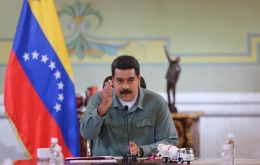
Venezuela's president, Nicolas Maduro, announced that he will attend the Summit of the Americas “at all costs” to bring “the truth of the country” at a press conference at the presidential palace in Caracas despite the Peruvian government reported that his presence would not be welcome in the Andean country.
-
Wednesday, February 14th 2018 - 09:54 UTC
Temer said that Brazil will continue to receive Venezuelan refugees
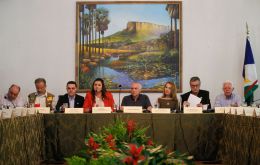
Brazil will not block Venezuelans from entering the country through the border in the northern state of Roraima, but has launched a task force to organize the flow and provide resources for cities and states dealing with the refugees.
-
Wednesday, February 14th 2018 - 09:48 UTC
PDVSA bonds should be traded as in default, recommends EMTA

Emerging markets trade group EMTA has recommended that bonds issued by Venezuela’s state-owned oil firm PDVSA should be traded flat or without accrued interest, the way bonds in default are typically traded.
-
Wednesday, February 14th 2018 - 09:36 UTC
Five ex PDVSA officials on trial in Houston for US$ 1 billion graft probe
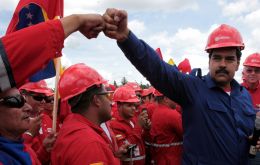
U.S. prosecutors announced charges against five former Venezuelan officials accused of soliciting bribes in exchange for helping vendors win favorable treatment from state oil company PDVSA, the latest case to stem from a US$1 billion graft probe.
-
Wednesday, February 14th 2018 - 09:28 UTC
“Lima Group” blasts Maduro's call for elections without an agreement with the opposition
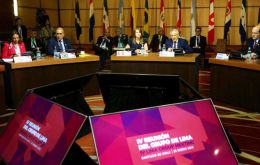
The “Lima Group” of Latin American nations plus Canada on Tuesday criticized the Venezuelan government’s decision to hold a presidential election on April 22 without reaching an agreement with an opposition coalition.
-
Monday, February 12th 2018 - 16:01 UTC
Temer talks of “diplomatic confrontation” with Maduro over exodus of Venezuelans
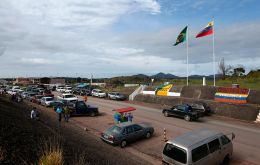
Brazilian President Michel Temer criticized the government of neighboring Venezuela for leading that country into a crisis that is causing an exodus of refugees into northern Brazil. Brasilia has called for democratic reforms by Venezuelan President Nicolas Maduro, who has consolidated power as his country’s economic crisis deepens with shortages of food and medicine.
-
Saturday, February 10th 2018 - 09:26 UTC
New British ambassador presents Letter or Credentials to President Maduro

The British Ambassador to Venezuela, Andrew Soper, presented his Letter of Credentials to President Nicolás Maduro during a ceremony at the Miraflores Presidential Palace in Caracas.
